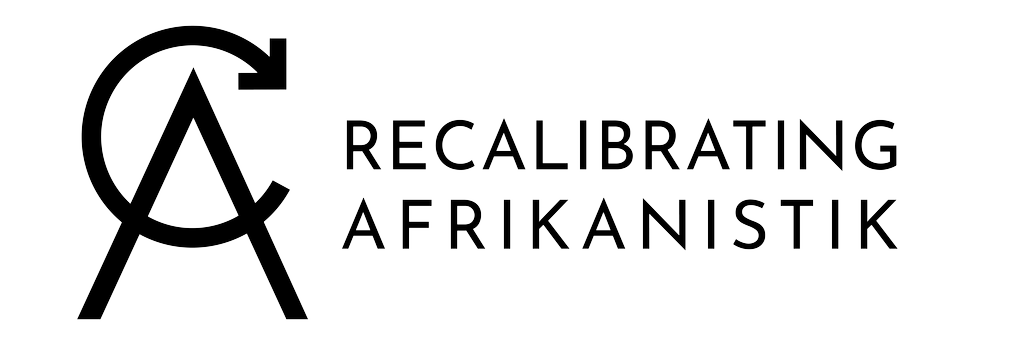Report on RecAf Digital Young Scholars’ Workshops
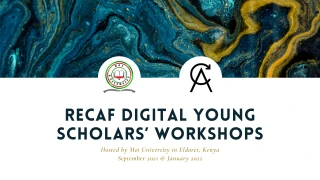
A central goal of RecAf as stipulated in the initial proposal was that each of our three African partner universities would have the opportunity to host a seasonal school during the course of the project, for which all the other RecAf partners would travel, meet, and learn from each other for about a week. Up first in 2021 was Moi University in Eldoret, Kenya. During the planning period in late 2020, at the height of the COVID-19 lockdowns, we maintained some level of optimism that the event would be able to happen: We set a date, put out a call, selected the participants, sent out acceptance emails, and waited for the lockdowns to end so we could buy flights from Germany, Nigeria, and South Africa to Kenya. Eventually, it became clear that the event couldn’t take place in-person in 2021 and—with heavy hearts—we canceled the event. Our Moi RecAf head, Prof. Tom Mboya, was particularly saddened by the thought that his current students and young scholars would miss out on the opportunity for academic development, and he pushed for us to do some digital event to fill the gap. Thus, the concept for a RecAf Digital Young Scholars’ Workshop hosted by Moi University was born.
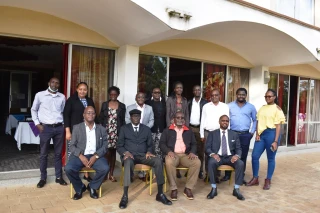
The event turned into two separate digital days, one in September 2021 and one in January 2022. The European partners, keenly aware of screen fatigue from long video conferences, advocated for shorter days, but our partners in Kenya wanted to get together physically for a hybrid event, and since they were going to rent a physical space for it, it made more sense for them to do full days. So we filled the days!
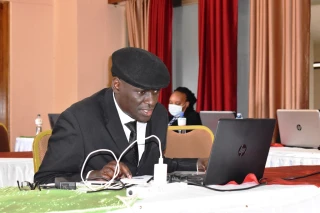
The September workshop went from 10:00 am to 6:00 pm Kenya time. Structurally, it had two blocks of student presentations with discussions afterward and mini lectures by partner staff members and guests spread throughout the day. The program featured people from six different universities coming together to watch nine student presentations, mostly by students from Moi University and the Federal University of Wukari in Nigeria, and four mini lectures: “An Introduction to Recalibrating Afrikanistik” by Prof. Rose Marie Beck from the University of Leipzig, “Getting Access to Literature” by Dr. Anne Schumann Douosson from the Goethe University Frankfurt, “Mixed Methods? Issues in Research Methodology” by Prof. Jamin Masinde from Moi University, and “What’s in a Language? South African Teachers Help Question Analytical Categories” by Lara-Stephanie Krause from the University of Leipzig. Prof. Tom Mboya acted as the master of ceremonies and organized everything on the Kenyan side, where people sat in a conference room together on their computers to engage both with each other and the partners abroad.
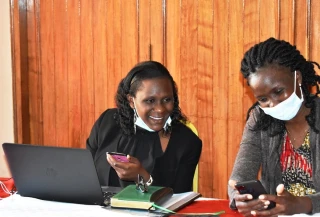
The feedback from the students was overwhelmingly positive. They were able to receive compliments and criticism from peers and professors in four different countries, despite the lockdowns that otherwise kept all the supervision and exchange localized. The Kenyan colleagues especially appreciated the opportunity to get together in-person soon after their national lockdown had eased. Still, we recognized a few issues with the event: 1) The times on the program were only in Kenya and Germany time, leaving especially the Nigerians confused about what time to show up. This meant that several of them were late, and we had to reorganize the program as we went along. 2) There wasn’t enough time allotted for discussion; we basically had to fly from one presentation to another, leaving time only enough for one or two comments per presentation at the end of each block. Any additional comments had to be sent over the Zoom chat or given privately. 3) Those outside of Kenya suffered from screen fatigue from over 6.5 hours of engaging video conferencing.
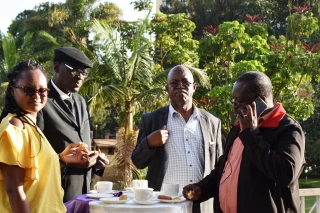
When the second workshop rolled around in January 2022, we attempted to fix these issues. We added Nigeria and South Africa times to the program. We got rid of the blocks of continuous presentations and mini-lectures and instead gave much more time to discussions, which we inserted after each student’s presentation, moderated by a different lecturer in the project whose expertise aligned with the presentations’ topic. We extended the lunch break to be two hours, allowing those outside Kenya a break from the screen and those within Kenya more time to mingle and chat. We heard seven student presentations, mostly from Moi University and Stellenbosch University, and had an engaging discussion on every single one.
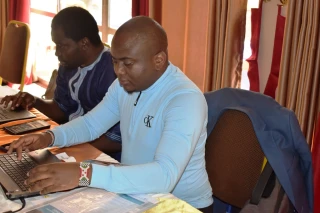
In the end, the two RecAf Digital Young Scholars’ Workshops were an effective consolation to the students who otherwise couldn’t receive international academic feedback and development in 2021, given the circumstances. We still mourned the loss of everything we get from being together with our international colleagues in-person—all the interaction, bonding, and memory-making that happens off-program when people are physically together—but we look forward to finally making the RecAf seasonal school in Eldoret, Kenya a reality in 2025!
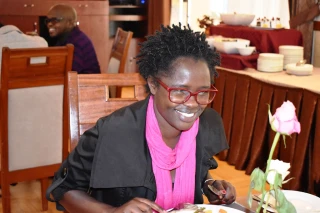
During the digital workshops, I wrote down salient quotes from various lecturers. Our graphic designer Kaitlyn Medina turned into memes to post on our social media presence, which became quite robust during the pandemic. You can see them below.












